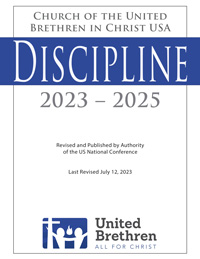CHAPTER 22
Local Church Conflict Resolution
The following guidelines and procedures are designed to help congregations, pastors, and conference leaders deal with local church conflict. The goal is to resolve the conflict and restore any damaged relationships. This process requires that the parties involved be willing to work through their differences in a spirit of Christian unity, and that they understand the principles of biblical conflict resolution taught in Matthew 18:15-17.
¶701 Negotiation Phase
Individuals in conflict should first attempt to resolve their differences privately, without congregational or national conference intervention. If this fails to bring a satisfactory resolution—either the accused party denies any wrong-doing, or they are unable to settle matters between themselves—one or two witnesses may be asked to assist.
¶702 Mediation Phase
Conflicts that cannot be settled privately should be resolved within the congregation. Local church boards and commissions may be asked to deal with the conflict.
¶703 Arbitration Phase
A local church is responsible for resolving conflict involving its own members. However, conflicts not resolved within the congregation may be referred to national conference leadership. If efforts at the negotiation and mediation phases fail, the local church may deem it necessary to refer the conflict to the national conference. As a general rule, this should occur only at the invitation of the board of administration or Personnel Relations Commission.
The US bishop and cluster leader will determine the appropriate arbiter(s) to deal with the conflict. These arbiters will make a final report with appropriate recommendations. Their decisions will be considered final.
¶704 Termination Phase
Any party refusing to adhere to the church’s ruling may be removed from church membership and from all ministry and leadership positions. The Executive Leadereship Team has the authority to remove guilty parties from church membership and leadership positions.




